- News
- Reviews
- Bikes
- Components
- Bar tape & grips
- Bottom brackets
- Brake & gear cables
- Brake & STI levers
- Brake pads & spares
- Brakes
- Cassettes & freewheels
- Chains
- Chainsets & chainrings
- Derailleurs - front
- Derailleurs - rear
- Forks
- Gear levers & shifters
- Groupsets
- Handlebars & extensions
- Headsets
- Hubs
- Inner tubes
- Pedals
- Quick releases & skewers
- Saddles
- Seatposts
- Stems
- Wheels
- Tyres
- Tubeless valves
- Accessories
- Accessories - misc
- Computer mounts
- Bags
- Bar ends
- Bike bags & cases
- Bottle cages
- Bottles
- Cameras
- Car racks
- Child seats
- Computers
- Glasses
- GPS units
- Helmets
- Lights - front
- Lights - rear
- Lights - sets
- Locks
- Mirrors
- Mudguards
- Racks
- Pumps & CO2 inflators
- Puncture kits
- Reflectives
- Smart watches
- Stands and racks
- Trailers
- Clothing
- Health, fitness and nutrition
- Tools and workshop
- Miscellaneous
- Buyers Guides
- Features
- Forum
- Recommends
- Podcast
TECH NEWS
 2025 Pashley Roadfinder - Shimano Ultegra.jpg
2025 Pashley Roadfinder - Shimano Ultegra.jpgThe Swiss Army knife of bikes? New era dawns for Pashley with launch of Roadfinder
Pashley has launched a steel-framed Roadfinder range that’s designed to be high quality and super-versatile, covering road and gravel riding. The collection includes both conventional and electric models, and they’re all made here in the UK. We’ve yet to ride any of the new bikes (a review model is on the way), but we’ve seen them and they certainly look the business. Pashley has purposely avoided the term ‘all-road’ so we will too. Forget we mentioned it.
What do you know about Pashley? Chances are that your answer includes the word ‘classic’ or ‘traditional’, maybe ‘practical’. You might have chucked the word ‘heritage’ in there somewhere. That’s the kind of vibe we usually expect from the Stratford-upon-Avon company that’s just a year short of its centenary (Pashley is Britain’s longest-established bicycle manufacturer).
There are certainly contemporary bikes in Pashley’s range, especially since the recent expansion of the Pathfinder series, but it certainly has a reputation for its traditional output.
> Pashley launches new Pathfinder collection featuring 3D-printed lugs and frame parts
Andrew Smallwood, formerly of Ribble and before that Boardman Bikes, was appointed Pashley CEO last summer, and he has a plan to push Pashley forward, embracing the brand’s heritage and UK-based design and manufacture, but with more of a modern twist… hence the new Roadfinder bikes.
“Up to this point, Pashley has been very much a heritage product, but we’re making a careful transition, an evolution of the brand,” says Andrew Smallwood. “We’re not going to stop doing that – we’ll keep the heritage of the brand because that’s really important to us – but we are starting to diversify the product range.
“The brief for the Roadfinder project was to develop a collection of extremely versatile bicycles that give cyclists the ability to conquer multiple terrains, journeys and adventures on one beautifully hand-crafted machine,”
“The Roadfinder collection also perfectly showcases and builds on our heritage of artisan frame-building, appealing to all riders who appreciate true versatility, performance and the unique ride experience you only get from a high-end steel frame, built by hand using the very best materials.
“A lot has gone into these Roadfinder bikes. It’s not just another steel frame. There's lots of 3D-printing in here – and that’s 3D-printing for the right reasons, not just doing it for the sake of doing it. It’s genuinely adding benefit to the consumer in terms of how the bike rides and performs.
“The Roadfinder is two frame platforms, electric and non-electric. It’s super versatile so there’s loads of clearance, the geometry is dialled. You can go for a road build or you can go for a gravel build, or anything in between.
“Mudguards, racks, loads of options for racks and so on... You can do a fast road ride on it, you can commute on it, you can Audax it, you could do touring on it, you could do bike backing on it, gravel, adventure… It’s the Swiss Army knife of bikes.”
Okay, so what exactly are we getting here? First of all, the range is divided into the conventional (non-electric) Roadfinder models which are designed for the road; then there are the Roadfinder E road-focused electric models. On the gravel side of things, there are the conventional Roadfinder X models and the Roadfinder X E electric bikes.
The idea is that the Roadfinder can turn its hand to a bit of anything.
“For instance, when I was commuting to work last summer, sometimes I’d go on the road and want to go as fast as I could, some days I’d do a gravel route and mix it up, and some days I’d put bags on the bike because I had a lot to carry,” says Andrew Smallwood. “I was thinking: I’ve got three different bikes here. If I could have one bike to do it all, what would it be? And this is that bike.”
The Pashley Roadfinder was designed and developed by Pashley in Stratford-upon-Avon. The 3D-printing is done off-site, but the bikes are built in Pashley’s own facility. Being so self-contained has benefits.
“It’s all done in-house,” says Andrew Smallwood. “We’ll have an idea for a bike one day. Over the weekend, between us, we’ll be thinking about it and say: ‘Let’s try that’.
“We’ll CAD it up by midday [CAD is computer-aided design], in the afternoon someone's pulling the prototype together, a couple of days later it’s painted, and then you’re testing it.
“What I’m used to elsewhere is having an idea for a bike, then going and talking to the factories that make the frame. There’s a lot of back and forth, and six months later you get a rideable prototype, and you’re back into it again. A year later, you might see something.
“At Pashley, the process is completely condensed, and the pace is one of our advantages. The whole British manufacturing thing is also something that we need to cherish and evolve. We have this amazing brand that’s still doing stuff in the UK.”
At the heart of things, the Roadfinder and Roadfinder X frames (but not the e-bike frames) are made from Reynolds 853 steel which Andrew describes as “the best quality steel for a bike”. Reynold is based in Birmingham, just up the road from Stratford-upon-Avon, and the two companies have a good working relationship.
“If you already understand the benefits of steel, and the ride of steel, there’s a strong sustainability message with these bikes too,” says Andrew Smallwood. “We manufacture in the UK. The steel is Reynolds, Birmingham. The saddles are from Brooks, also based in Birmingham. We’re trying to keep everything as close as we possibly can.
“Look at the market at the moment and everything is carbon or big chunky aluminium. There’s very much a familiar feel about everything.
“There’s definitely an opportunity to provide for the customer who is looking for something a bit different. Something that's still very nicely designed and bang up to date, but with attention to detail, craftsmanship, artisan manufacture, and in a way that you’re not having to spend 10 grand on the bike.”
What’s unusual is the use of 3D-printed and laser-cut elements for various parts of the frame. For example, you get a 3D-printed seat tube and top tube junction.
Jon Cumberpatch, lead designer at Pashley, says, “This is a key signature of the frame. It’s going to be a future identity for Pashley, a theme we're going to continue through the range as we develop it, and we worked very hard to finesse this junction, the way the top tube flows into the seatstays.
“If you look at the way the seatstays join, we’ve got these little pointed details – a nod to frame building of old and lugs.
“A lot of skill from our welding team goes on here. This is a double-pass TIG weld that is then ground back, to give you that flush appearance. And then, because this is a stainless part, we use low-temperature silver solder around there, rather than brass, which avoids any distortion and gives this lovely little fillet.”
Andrew Smallwood adds, “The difference between a basic steel frame and something like this with more detailing… It’s not just about the cost of the tubing and the parts, it’s down to things like the cost of the silver in the solder which is significantly different.
“It hasn’t just been a case of designing a steel frame, but really designing a steel frame. Let’s do it properly.”
The cable ports on the side of the head tube for internal routing are 3D-printed too.
Jon Cumberpatch says, “If you start drilling holes in there for cables you’re going to get a stress concentration which could develop into a crack, so we’ve tried to keep things nice and clean here.
“Even if the cables were to rub through the paint, they’d rub on stainless inserts, so you’re not going to create a place for rust to gather.
Various other parts are 3D-printed, such as the UDH-compatible dropouts – decorated with a P for Pashley, and the front derailleur hanger (which you can remove if you want to go 1x).
Jon Cumberpatch says, “3D printing is a buzzword in the industry now. A lot of people are doing it but we’re using it where it makes sense to us. We’re not trying to do a 3D-printed bike, we’re just using it for elements that help us create a better design. We’re using it sensibly.
Pashley says that the frame is robust enough to handle gravel riding and that torsion stiffness is high, although the top tube is thin.
“The whole top line of this bike is as skinny as we could go, giving you that flexibility and the feel of steel that people like, ” says Jon Cumberpatch.
“The frame gets full e-coating corrosion protection as well. After fabrication, we send it off. It gets dipped in the e-coat solution, so that's inside and outside rust protection. This is a frame that’s going to last you.”
The 44mm head-tube is machined and the Roadfinder and Roadfinder X (the non-electric bikes) get a Columbus Futura Cross+ carbon fork up front with a flip chip drop-out that allows you to adjust the geometry slightly to take account of the tyre size you are running.
The Pashley Roadfinder (with no suffix) is available with either Shimano mechanical or Di2 (electronic) groupsets, Parcours Alta carbon wheels and Zipp/Brooks finishing kit. Complete bikes in standard specs weight from 9.5kg, according to Pashley.
The Pashley Roadfinder X (above) is a gravel and off-road capable bicycle with the spec chosen accordingly. There are Shimano, SRAM and Campagnolo groupset options, with Parcours Alta carbon wheels and Zipp/Brooks finishing kit. The Roadfinder X is dropper post compatible and Pashley says that complete bikes in standard specs weigh from 9.8kg.
As mentioned, the Roadfinder and Roadfinder X frames are made from Reynolds 853 while the Roadfinder E (below) and Roadfinder X E frames are a combination of Reynolds 725, 631 and 525 tubing, again with that full e-coating applied before painting.
The e-bikes use Mahle’s X20 electric rear hub drive system with 55Nm of torque, and a 250W battery.
The Pashley Roadfinder E is the electric version of the Roadfinder. Standard specification complete bike weights start at 13.2kg.
The Pashley Roadfinder X E is the electric version of the Roadfinder X with standard spec complete bike weights starting at 13.5kg.
Each features a machine-tapered head tube that allows for a full carbon e-bike-compliant road/gravel fork with a tapered steerer.
The Roadfinder bikes feature T47 (threaded) bottom brackets and 27.2mm seatposts.
“The T47 bottom bracket gives us a little extra space to route cables around that area, and it gives us more space to weld to,” says Jon Cumberpatch. “It’s a bike for British conditions. People don’t grease their seatposts, so we have an aluminium shim in there to ensure it’s not going to seize.”
The Roadfinders are available in five standard sizes from XS to XL. A medium-sized frame has a 570mm effective top tube, a 520mm seat tube, and a 160mm head tube. The stack on this size is 598mm while the reach is 392mm, giving a stack/reach of 1.52.
If a standard geometry doesn’t work for you, Pashley will change it for you. There will be an upcharge for that, of course. In fact, when we spoke to the guys from Pashley, they seemed happy for you to change pretty much anything. If you intend to run a wireless groupset and don’t need internal gear cable routing: no problem, they’ll make you a frame without entry/exit points.
Andrew Smallwood says, “Because these bikes are bespoke, it means that if the customer wants to tweak something, it’s just a phone call and a conversation and we can do it.
The frames are handbuilt in Stratford, so if you want a different top tube or head tube, we can do that. Even the 3D printed elements can be done bespoke for an upcharge.”
As mentioned up top, we’ve not ridden any of the Roadfinder bikes yet (we’re working on that) but we’ve seen them and the results are stunning, right down to the wrap around metallic graphics and lovely aluminium head badge.
Versatility is front and central here. You get space for tyres up to 45mm wide, plus mounts for mudguards and multiple bottle cages, and front, rear and frame luggage capacity.
Pashley offers each of the four bikes (two conventional, two electric) in three standard spec variations and three colourways – Azure Blue, Rich Burgundy, and Oak Green. They'll do custom colours too.
All Pashley Roadfinders are wet-painted with stencilled and painted graphics giving a high-end feel. Further options are available for a classic finishing kit (Zipp Service Course Silver, Brooks B17 tan saddle and tape) and colour-matched mudguards. Those mudguards look very cool – which isn’t a phrase you often hear.
Pashley Roadfinder complete bikes start at £2,795.
Pashley Roadfinder models
Pashley Roadfinder 105 Mechanical £2,795
Groupset Shimano 105 R7100
Wheels FZR XC/Shimano/Sapim Race
Tyres Panaracer Gravel King, semi-slick, 700x35
Pashley Roadfinder 105 Di2 £3995
Groupset Shimano 105 Di2 R7150
Wheels Parcours Alta
Tyres Panaracer Gravel King, semi-slick, 700x35
Pashley Roadfinder Ultegra Di2 £4,595
Groupset Shimano Ultegra Di2 R8150
Wheels Parcours Alta
Tyres Panaracer Gravel King, semi-slick, 700x35
Pashley Roadfinder E 105 Mechanical £3,995
Groupset Shimano 105 R7100
Wheesl FZR XC/Shimano/Sapim Race
Tyres Panaracer Gravel King, semi-slick, 700x35
Pashley Roadfinder E 105 Di2 £5,295
Groupset Shimano 105 Di2 R7150
Wheels Parcours Alta X20
Tyres Panaracer Gravel King, semi-slick, 700x35
Pashley Roadfinder E Ultegra Di2 £5,995
Groupset Shimano Ultegra Di2 R8150
Wheels Parcours Alta X20
Tyres Panaracer Gravel King, semi-slick, 700x35
Pashley Roadfinder X Shimano GRX 610 £2,795
Groupset Shimano GRX 610 1x12
Wheels FZR XC/Shimano/Sapim Race
Tyres Panaracer Gravel King X1, 700x45
Pashley Roadfinder X Rival AXS £4,295
Groupset SRAM Rival AXS 1x12
Wheels Parcours Alta
Tyres Panaracer Gravel King X1, 700x45
Pashley Roadfinder X Campagnolo Ekar £4,595
Groupset Campagnolo Ekar 1x13
Wheels Parcours Alta
Tyres Panaracer Gravel King X1, 700x45
Pashley Roadfinder X E Shimano GRX 610 £3,995
Groupset Shimano GRX 610 1x12
Wheels FZR XC/Shimano/Sapim Race
Tyres Panaracer Gravel King X1, 700x45
Pashley Roadfinder X E SRAM Rival AXS £5,495
Groupset SRAM Rival AXS 1x12
Wheels Parcours Alta X20
Tyres Panaracer Gravel King X1, 700x45C
Pashley Roadfinder X E Campagnolo Ekar £5,995
Groupset Campagnolo Ekar 1x13
Wheels Parcours Alta X20
Tyres Panaracer Gravel King X1, 700x45C
All standard specs include Brooks Cambium C15 saddle and Brooks Cambium handlebar tape. All electric bikes come with Mahle X20 drive system, 250W battery
Frames are priced at £1,595.
Get more info from www.pashley.co.uk.
Mat has been in cycling media since 1996, on titles including BikeRadar, Total Bike, Total Mountain Bike, What Mountain Bike and Mountain Biking UK, and he has been editor of 220 Triathlon and Cycling Plus. Mat has been road.cc technical editor for over a decade, testing bikes, fettling the latest kit, and trying out the most up-to-the-minute clothing. He has won his category in Ironman UK 70.3 and finished on the podium in both marathons he has run. Mat is a Cambridge graduate who did a post-grad in magazine journalism, and he is a winner of the Cycling Media Award for Specialist Online Writer. Now over 50, he's riding road and gravel bikes most days for fun and fitness rather than training for competitions.
Latest Comments
- Rendel Harris 2 sec ago
To rhyme with design. I wondered this myself so looked it up a while ago, according to the founder Micki Kozuschek he and his team had a few...
- Rendel Harris 53 min 14 sec ago
It's not being pedantic at all, careless driving is successfully prosecuted (and I have been in court more than once when a driver has been...
- HLaB 1 hour 16 min ago
It's hopefully an urban myth but I heard it was designed that way on purpose, so the cyclepath captured any flooding and the busway would remain clear
- mdavidford 1 hour 19 min ago
I should imagine eating chopsticks anywhere could be potentially rather perilous.
- Rendel Harris 1 hour 37 min ago
When The Badger stopped for protesters (albeit dockworkers rather than farmers) it was their stress gauges rather than his that would have been...
- mdavidford 1 hour 38 min ago
Never mind that. More importantly, since when does a bike lock qualify as a 'tool'?
- Eurodolphin 2 hours 23 min ago
Having experienced a brain injury (while my helmet only suffered a little crack) I welcome all this excellent research which looks for ways to...
- mattw 2 hours 25 min ago
Nope. Has anyone ever bought a wheel trim studded with diamonds for their car? Thought not.
- David9694 2 hours 49 min ago
Dad of William Brown Jr battles Folkestone Town Council over illuminated sign featuring late son’s picture...

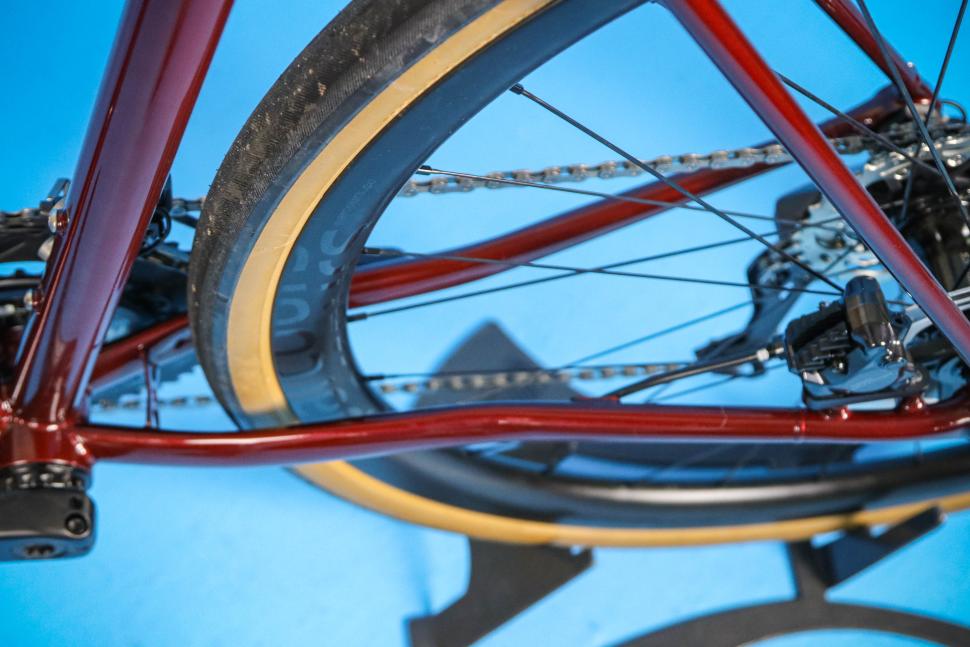
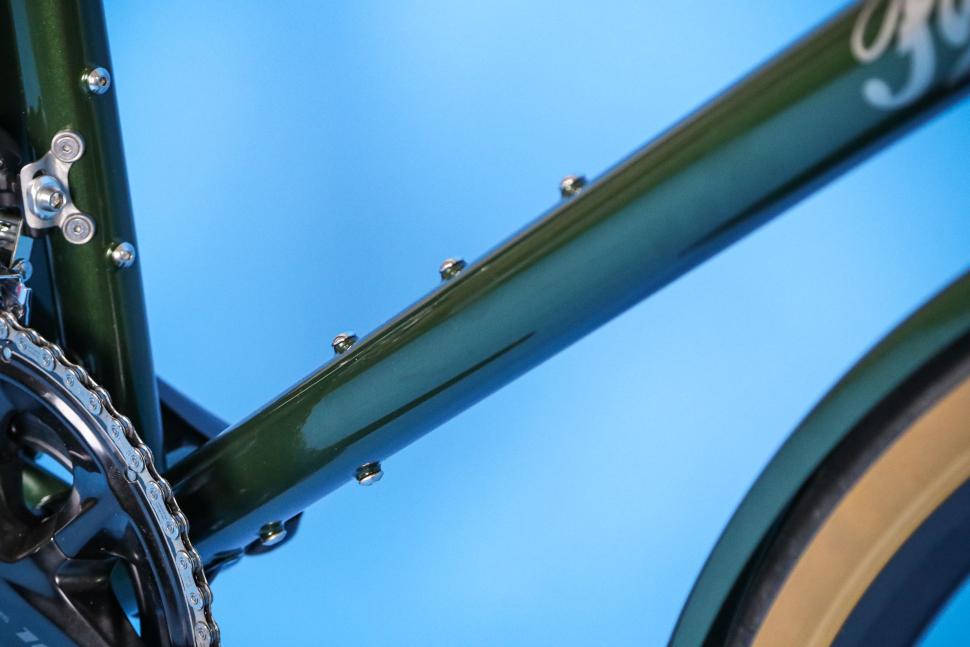

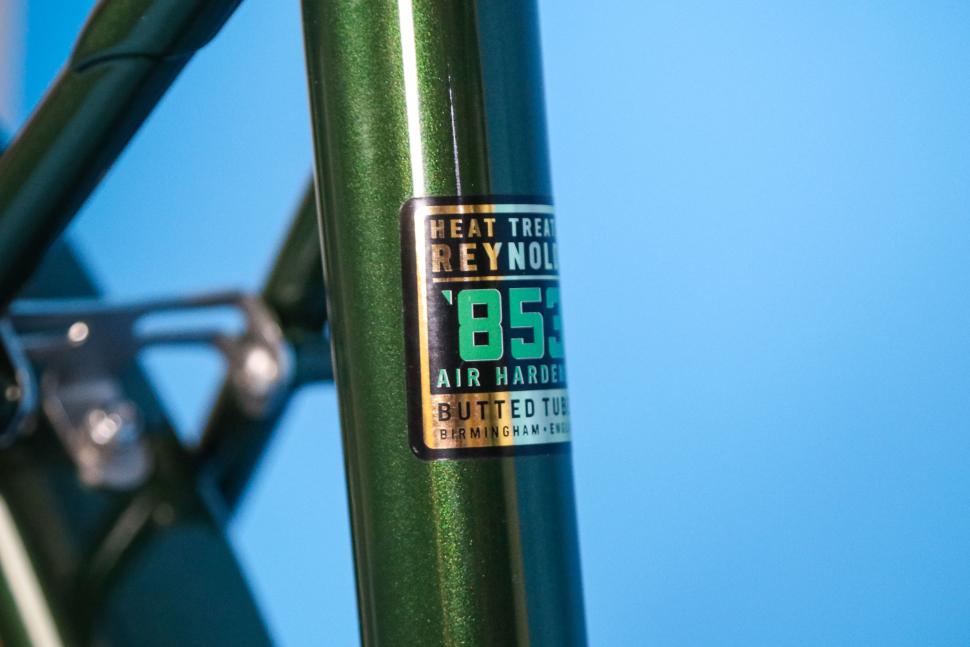
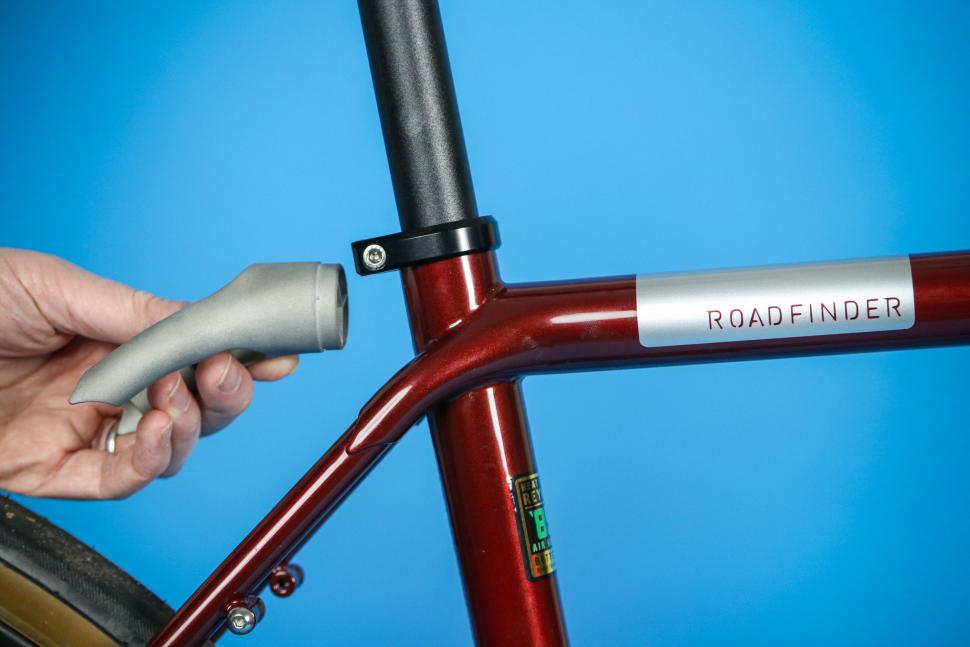
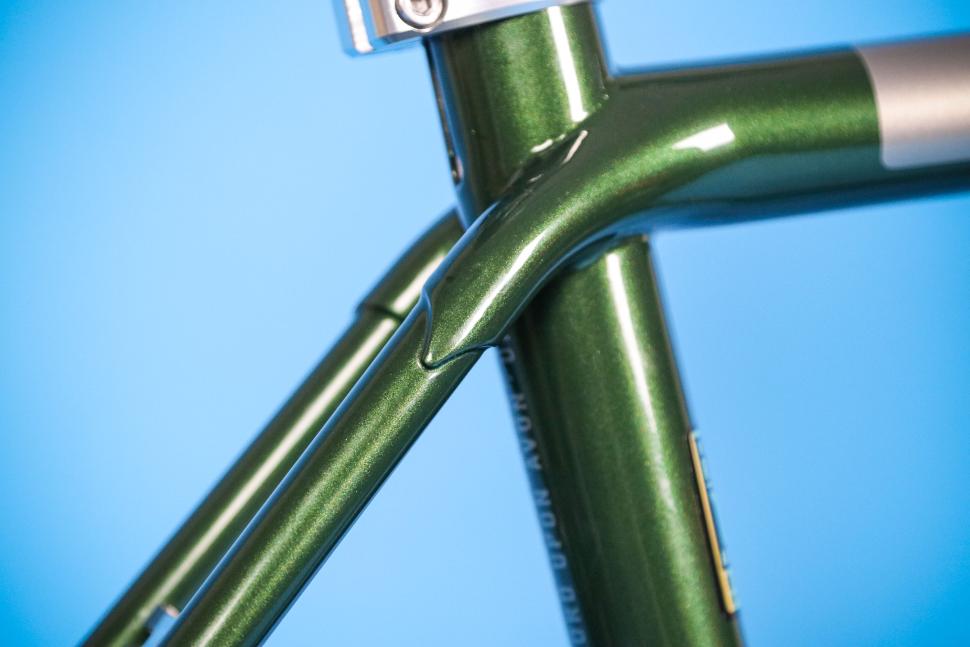
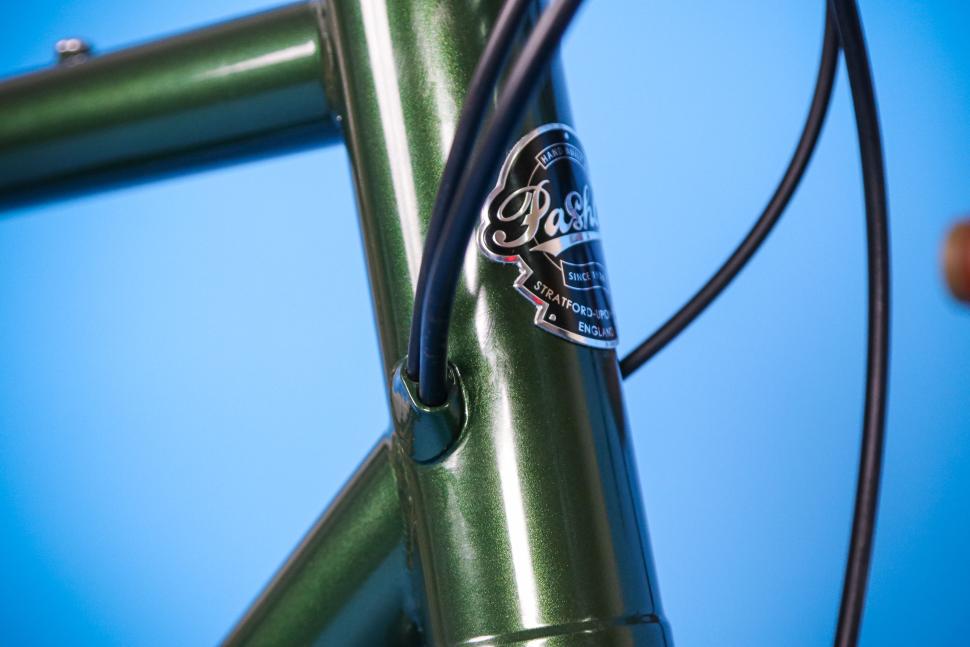

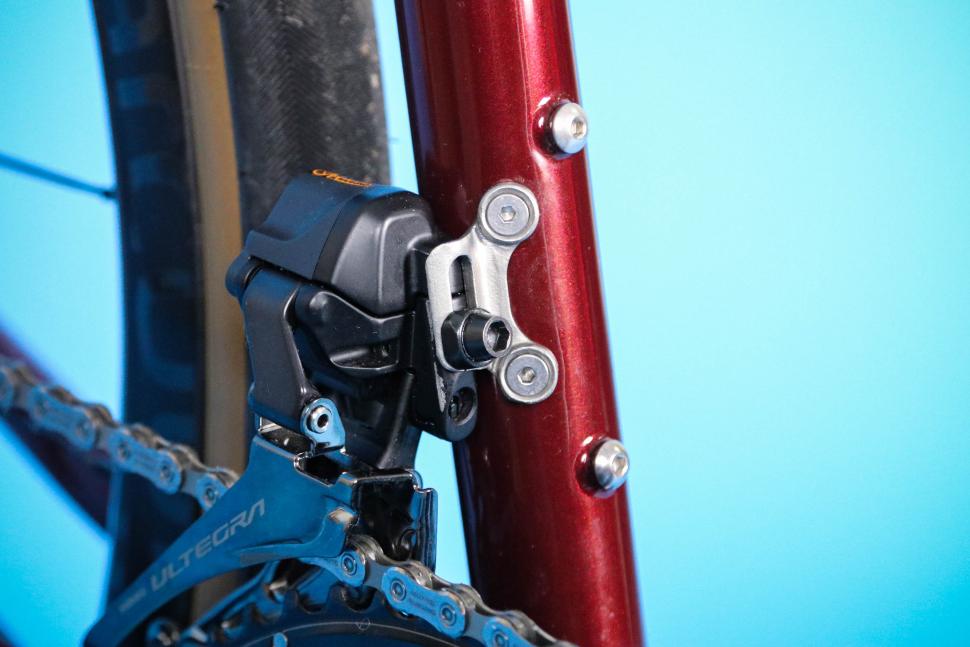



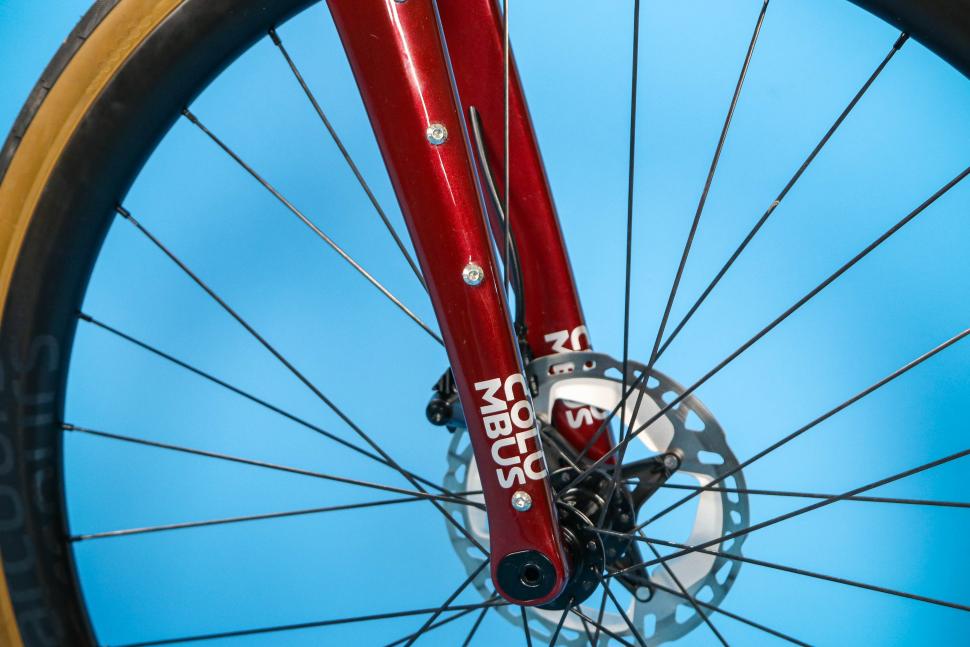

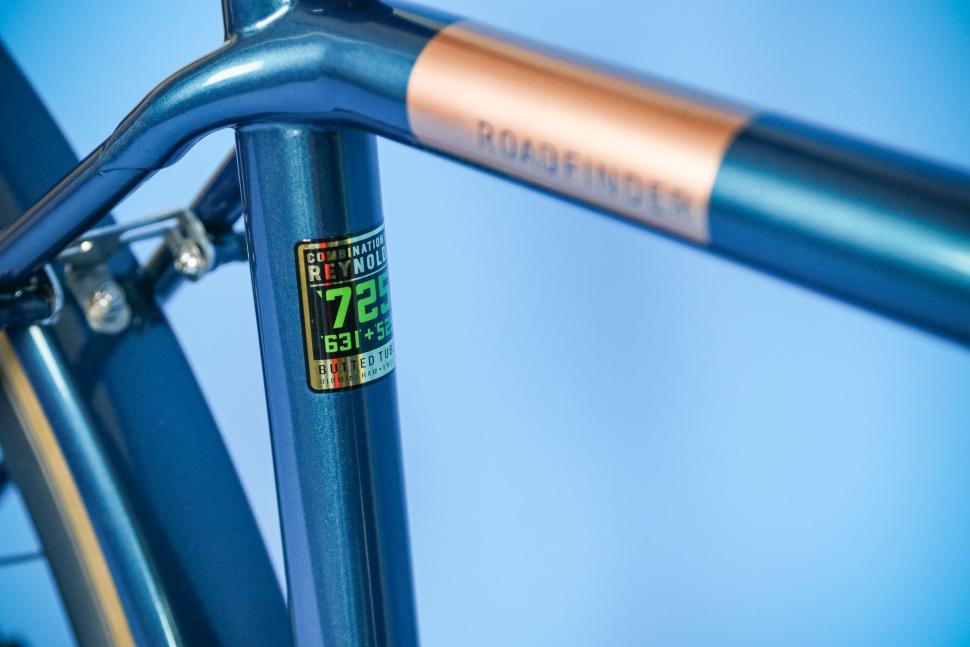
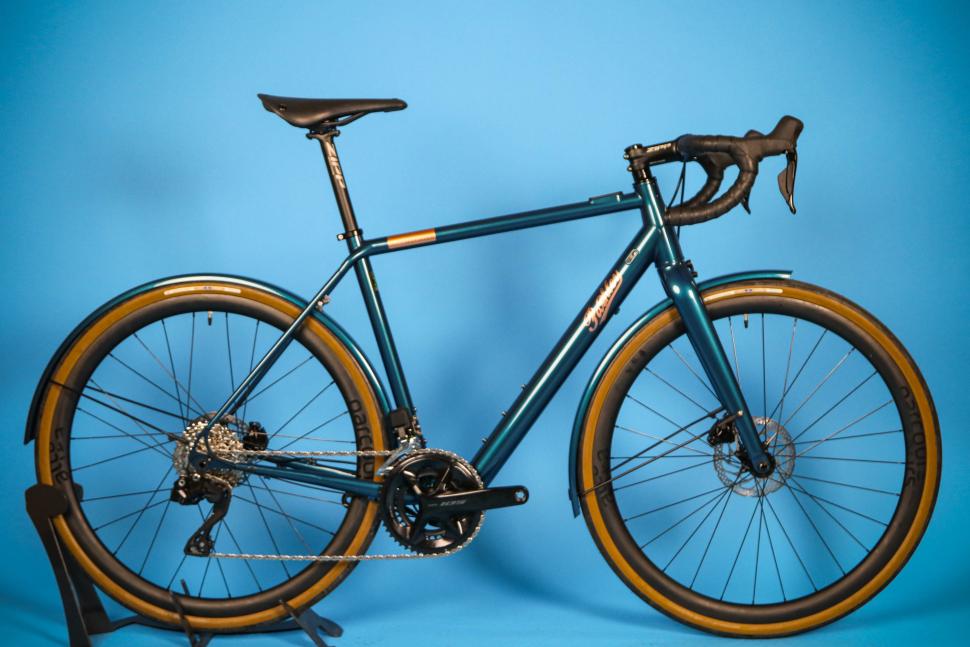
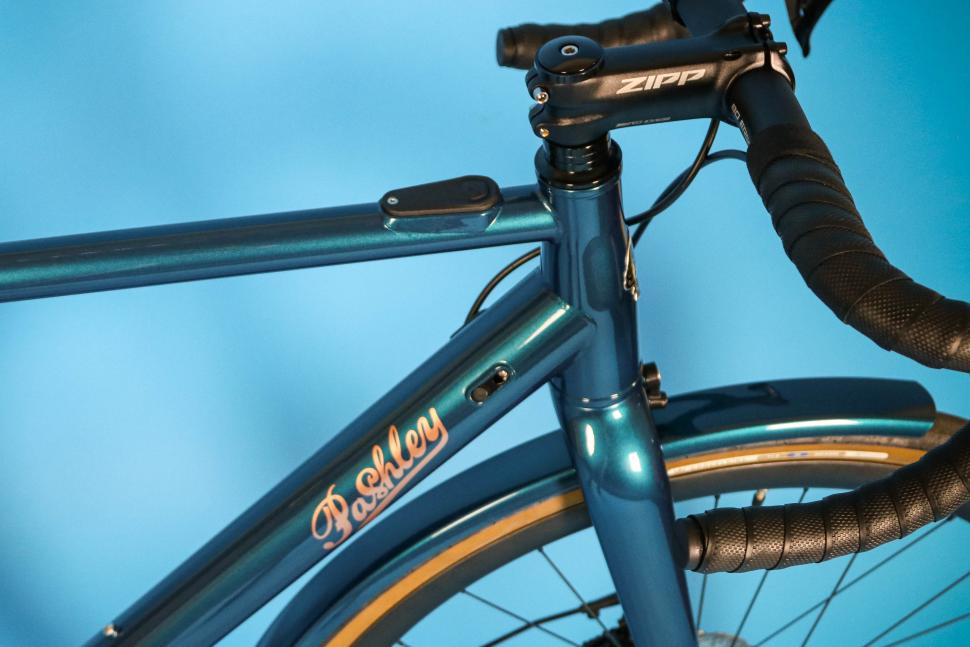
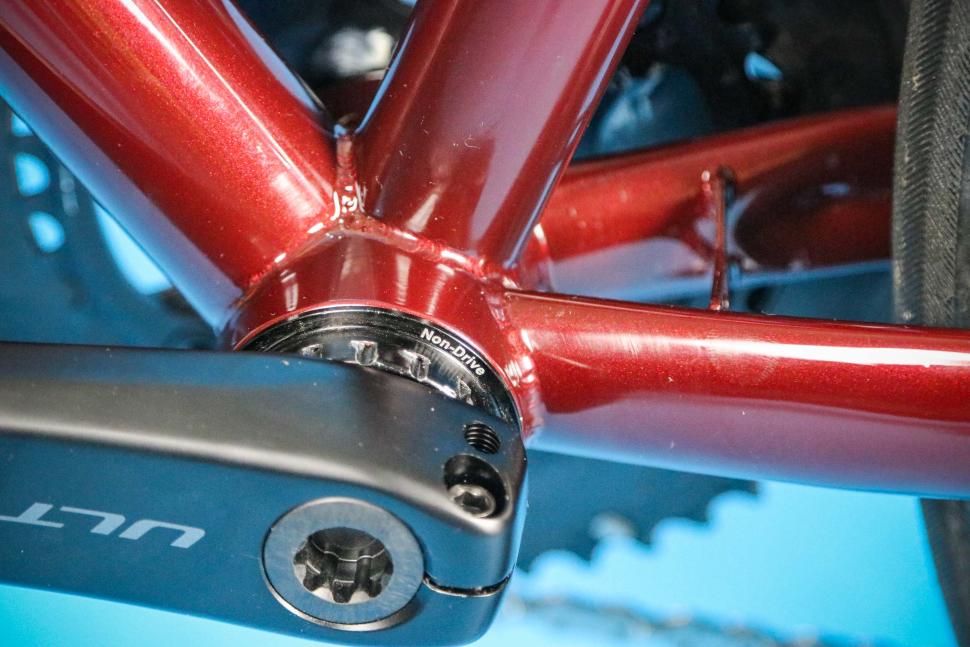







































































Add new comment
12 comments
My only gripe is the options for the frameset are a little limited - I've been eyeing up a Fairlight Secan for some time now for my 'dream gravel build' with Reynolds steel (I really want a Columbus built Condor but their options have limited clearance). I think the Fairlight just edges it, but the lack of top tube bag mounts is odd.
I couldn't wait for Secan, so plumped for a Faran, and i could not be happier! Helps having a Surly as a full time gravel bike!
The new Condor Bivio does look pretty sweet, but clearance is way less than both my Surly and my Fairlight.
Out of interest, how much difference does Columbus versus Reynolds make? Both come across as comparably premium brands making "nice" steel tubes. I would have no idea where to begin comparing fancy steels, especially since both brands do a range of options (depending on treatment etc.).
I guess you've done your research, but if Columbus steel and top tube mounts are both important to you, then Stayer might be an option. Various models depending on how much tyre clearance you want; all (I think) can be specified with top tube mounts if you're not buying from stock. Batch builds are resonably priced.
Or Mason Exposure? It's (mostly) Dedacciai steel (with a Reynolds headtube); again, don't know how much difference that makes! More expensive that the Secan too.
The Scarab Paramo also looks like a very nice bike, built with Columbus steel and with top tube mounts (if requested? I think frames are built to order. The bike pictured on their website certainly has top tube bosses). But probably going to be much more expensive, especially after taxes/duties (AFAIK there are no UK-based retailers). Although if this is a "dream" build...
In technical terms it makes zero difference to me, I think I just have some kind of emotional attachment to Italian made steel for some reason. My road bike is a Condor Italia RC made with Dedaccia aluminium. It's a beautiful bike both to look at and ride, and I think i just wanted something to match.
I'll have a look at Stayer and Mason again so to see what they're offering. Standert also do some nice options, but they're at the racier end of the spectrum.
It's definitely a good time to be in the market for metal bikes...
Not a single picture of the rear dropout....
Except for the 12th and 13th pictures, which are not only of the rear dropout but also include the "raw" 3D printed version as well.
They look pretty nice, except for the mudguards, which not a lot of manufacturers do well. The line should be perfect, especially for bikes used for product shots, and that bent metal bracket at the top of the seatstays looks cheap.
The mudguards should be perfectly concentric with the rims, or should gradually open up from back to front by a few millimetres so that anything that gets sucked in can continue through. They shouldn't be pressed closer to the tyre at the seatstay bridge and the fork crown like these are. Ideally, the bottom of that fork crown should be higher, and there should be an actual seatstay bridge (3D print?) with a radial hole the same distance from the axle as the chainstay bridge or the boss on the seat tube.
They should also be at least as wide as the widest tyres that will fit with mudguards. I can't tell if these are or not.
Sorry, I'm a bit opinionated on mudguards.
Lovely looking frames. Also glad I'm not the only one who appreciates proper fender lines and the mounts that aid them. I twitched a bit seeing these. Still, colour-matched metal guards only add to the appeal here. Nice work Pashley!
I prefer front mudguards that protect the drivetrain, the one illustrated is too short front and back.
Dude you are just a total and utter nerd. And that's brilliant.
I think they have done a great job on these bikes ; upto date 853 steel frames British made and at a good weight with decent finishing kit and at a good price. The electric version looks good as well with its hidden battery.
Well done Pashley.
Concerning the mudguards the front one needs to attach to the back of the fork than the front.